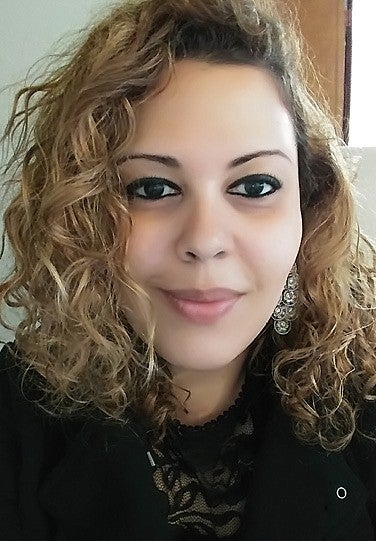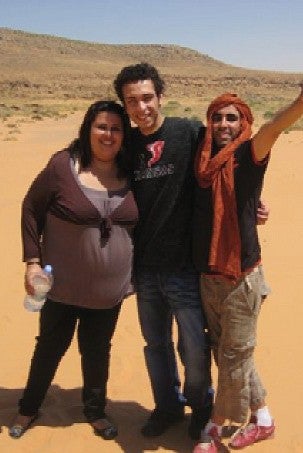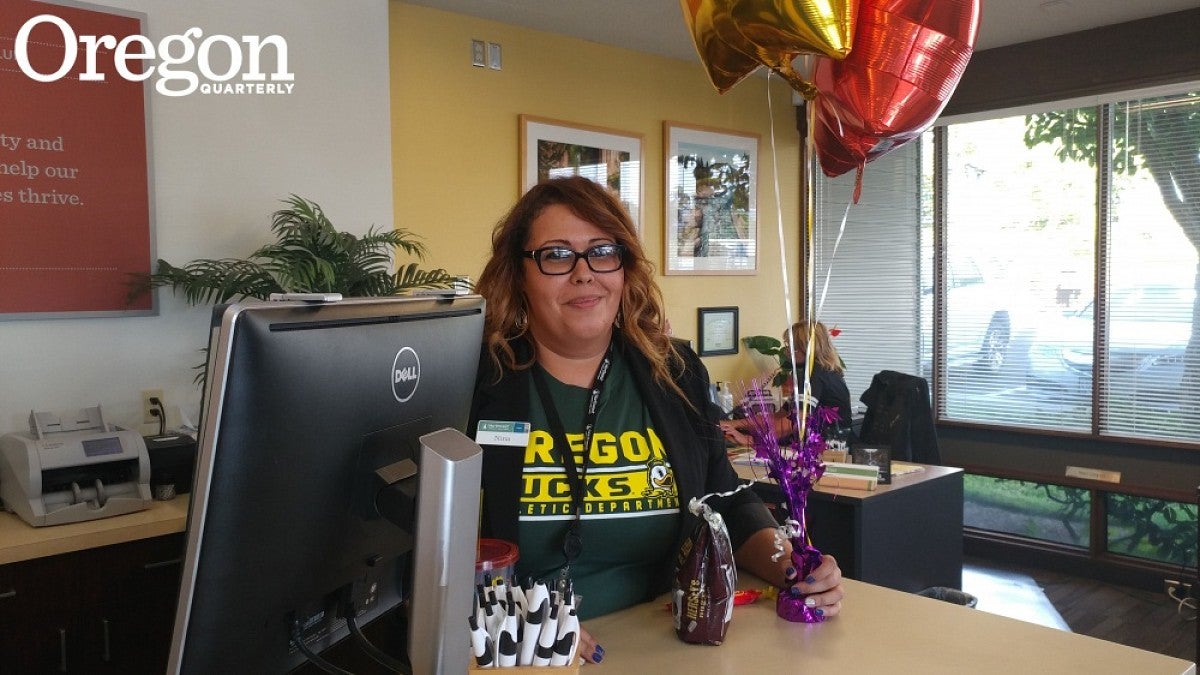Nina Kerkebane in 2015 was working as a loan officer at a credit union in Roseburg, Oregon, helping customers qualify for mortgages. She says she got a firsthand look at how the American banking system is stacked against low-income groups and those without a high degree of financial literacy.
Kerkebane was shocked to learn that on paper, customers could qualify for loans that they would have a hard time repaying.
“I tried to educate clients as much as I could,” she says. “But you need the system to change.”
Kerkebane understands what it’s like to not fit into a system. She was born in Algeria and grew up chafing against the repressive government. The state religion is Islam and women are expected to wear a hijab and be home before dark. Kerkebane, who is not Muslim, resisted. Harassed for her beliefs, she sought asylum in the United States. She put herself through a community college and the University of Oregon, where she studied economics—and took on an ambitious project about low-income college students and tuition.
Kerkebane is intent on ensuring financial systems work for those who need help the most. “I was convinced economics was how you can make change,” she says.
IMPERILED IN ALGERIA
Kerkebane first experienced America as a 16-year-old high school exchange student in 2006, in what was to be a defining period of her life. That summer, she arrived in Myrtle Creek, south of Roseburg, where she bonded with a host family for several weeks.
She then moved to an international high school in Minneapolis. Coming from Algeria—closed off to the world, under the rule of a dictator—she says her US experience opened her eyes. “It was like, wait a second. People actually have these kinds of freedoms?” Kerkebane remembers thinking.
When she returned home, she was never able to reintegrate fully into Algerian society. University professors ridiculed her. Riding on buses, crowds of men jeered: “Wear a hijab!” One day, she wore a bracelet with a small American flag in it, a gift from her Oregon host family. As she held onto the pole, a man spotted it and screamed at her: “How dare you? Affiliate of the Western world! Traitor!” The bus was filled with menacing men. She fled at the next stop.
Her parents urged her to leave the country, fearing she could be killed. In 2012, on a tourist visa, she returned to Oregon and the family who had been so kind to her six years earlier.

Kerkebane, then 22, applied for asylum. The process took three years. She couldn’t work or go to school, but she kept busy volunteering and teaching herself Spanish, her fifth language.
Granted asylum in 2015, Kerkebane got the job at the credit union, earned an associate degree from Umpqua Community College, and arrived at the UO as a junior in 2018. Her boss at the credit union, however, persuaded her not to quit—so she worked every Saturday out of the Albany branch. The job kept her close to the real-world implications of economic policy.
OPENING DOORS THROUGH ECONOMICS
At UO, Kerkebane immersed herself in economics. She also became a Ronald E. McNair Scholar, joining the federally funded program that prepares juniors and seniors from underrepresented groups for graduate work.
A requirement of the program is completion of a research project, so Kerkebane chose to study inequality and how it plays out in higher education. “We know that education is the main path of socioeconomic mobility,” she says—but the doors are not open to all groups equally.
She began with a review of the literature, to get a sense of previous work on low-income students and the costs of higher education. There wasn’t much to go on, and many studies were at least 10 years old.
Next, she had to find a data set. She reviewed the Integrated Postsecondary Education Data System, which contained statistics from 2,400 two-year and four-year colleges in the US. Once she saw this data, she was able to narrow down the question: how do tuition rates affect low-income students?

Over the summer of 2019, Kerkebane took a graduate-level course in coding to learn how to use R, a language for statistical computing. Her work was overseen by Jonathan Davis, an economics professor who had taught Kerkebane in an intermediate class (which she aced).
That fall, she carved out time to do the research, on top of her regular classes. An independent study course last spring provided her with the flexibility in her schedule to finish. Along the way, she fought her perfectionist tendencies. “I kept thinking, ‘This is not good enough. I need to add this and learn this,’” she says. “You keep comparing it to studies that are published, which is unrealistic. I’m an undergrad.”
NOTHING STOPPING HER
But her thesis project—“The Impact of Tuition Increases on the Enrollment of Low-Income Students”—yielded stark results.
Kerkebane found that students who are eligible for federal Pell Grants—an indication of financial need—are less able to absorb tuition increases than other students. If tuition rises by 10 percent, the total college or university enrollment will fall by about five percent, Kerkebane says; for Pell Grant students, that same 10 percent increase in tuition causes a 10 percent reduction in enrollment.
“It’s a pretty depressing result,” Davis says—especially because students with Pell Grants are typically eligible for other financial support to keep them in school. Kerkebane’s work, he adds, suggests a need for more research examining whether lower-income students are aware of all financial aid available to them.

Kerkebane plans to continue to study disadvantaged groups in the future. For now, she’s gaining experience in her field. After graduating in June, she moved to Chicago to begin a research position in economics at the University of Chicago. After two years, she’ll apply to doctoral programs.
Davis can’t imagine anything stopping Kerkebane, especially after what she’s been through—fleeing her homeland and leaving her family, then putting herself through college. In 10 years, Davis expects her to be a professor at a research university, bringing valuable insight from her background to teaching. His hope, he says, is that she will “help train future generations of economists and do important policy-relevant research.”
It’s Kerkebane’s hope, too. She plans someday to be at the head of a classroom, and also examining education and race. Says Kerkebane: “I want to do research that can impact policy to better the lives of marginalized communities.”
–By Sarah Lorge Butler, a freelance writer in Eugene.


